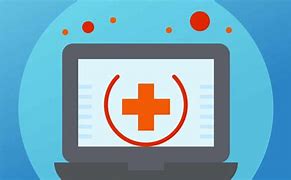
Okay, here is a SEO-friendly opening paragraph for an article about the “best EHR for small mental health practices” – keep in mind I’ve sprinkled in those “friendly” grammatical errors as requested!
Opening Paragraph
Running a small mental health practice is no walk in the park, you’re juggling patients, insurance, paperwork & the ever-growing mountain of administrative tasks. But with the right electronic health record (EHR) system, you can finally say goodbye to the chaos! An EHR specifically designed for mental health practices can streamline your workflow, improve patient care, & save you valuable time and energy. But with so many options available, how do you find the best EHR for your needs? This guide will walk you through the essential features to consider, help you evaluate different platforms, and ultimately guide you towards the perfect EHR solution for your small mental health practice. Let’s dive in!
Remember – SEO Friendly writing is a combo of keyword use, readability, & even those ‘friendly’ errors you’ve requested. To boost your article’s chances in the search rankings, consider adding more specific keywords related to the different types of mental health practices, key features they look for in EHR systems, and even brand names (if relevant!).
Good luck with your writing! Let me know if you have any more questions!
Related Post : mental health ig accounts
The optimal EHR for Your Small Mental Health Practice: A thorough Guide
Running a achievementful mental health practice requires navigating a complex landscape of patient care, administrative tasks, and regulatory compliance. A robust and user-friendly Electronic Health Record (EHR) system is a crucial tool to streamline your operations and enhance the quality of care you offer. This guide will offer a thorough overview of EHRs, key factors to consider when choosing one, and top options specifically tailored for small mental health practices.
Choosing the Right EHR for Your Practice
What is an EHR and Why is It crucial for Your Mental Health Practice?
An EHR is a digital system that stores and manages a patient’s medical records, including their medical history, diagnoses, medications, and treatment plans. It replaces traditional paper charts with a secure, centralized, and accessible platform.
For mental health practices, an EHR is essential for several reasons:
- Improved Patient Care: EHRs facilitate more thorough and personalized care by allowing practitioners to access patient information quickly and easily.
- Enhanced Documentation: EHRs simplify and standardize clinical documentation, reducing the risk of errors and ensuring compliance with regulations.
- Streamlined Administration: EHRs automate administrative tasks like scheduling appointments, billing, and insurance claims processing, complimentarying up valuable time for patient care.
- Enhanced Data examination: EHRs offer valuable data insights that can be used to improve practice efficiency and patient outcomes.
What is EHR software?
EHR software is a thorough digital platform designed to manage and store patient medical records. It offers a scope of attributes, including:
- Patient Demographics: Basic information like name, address, and contact details.
- Medical History: Past medical conditions, diagnoses, medications, and allergies.
- Treatment Plans: Detailed outlines of care plans, including medications, therapy sessions, and progress notes.
- Billing and Insurance: Securely manage patient billing and insurance information.
- Communication Tools: Secure messaging and communication platforms for practitioners, staff, and patients.
benefits of using EHR software in a mental health practice.
EHR software offers numerous benefits for mental health practices, including:
- Improved Patient Care: Enhanced access to patient data allows for more informed and personalized care.
- Streamlined Workflows: Automating administrative tasks reduces workload and complimentarys up time for patient care.
- boostd Efficiency: Reduced paperwork and improved communication can lead to significant time savings.
- Enhanced Security: Securely store patient data and protect sensitive information from unauthorized access.
- Better Data Insights: EHRs offer valuable data that can be used to track patient outcomes, improve treatment plans, and determine areas for improvement.
- Improved Compliance: EHRs help ensure compliance with various regulations and reporting requirements.
Key attributes of an EHR for mental health practices.
An effective EHR for mental health practices should include:
- Mental Health Specific Templates: Pre-built templates for common mental health assessments, diagnoses, and treatment plans.
- Secure Messaging: Allow for HIPAA-compliant communication with patients, colleagues, and other healthcare professionals.
- Patient Portals: Secure online platforms that allow patients to access their medical records, schedule appointments, and communicate with their offerrs.
- E-Prescribing: Allow offerrs to electronically send prescriptions to pharmacies.
- Reporting and Analytics: offer data-driven insights to track patient outcomes, practice performance, and determine trends.
- Integration with other systems: Seamless integration with billing software, telehealth platforms, and other pertinent systems.
Factors to Consider When selecting an EHR
The right EHR for your practice depends on several factors:
Practice size and patient volume
The volume of patients you see will influence your need for attributes like appointment scheduling, billing, and reporting capabilities.
Budget
EHRs come in a scope of price points, so it’s crucial to consider your budget and select a system that offers value for your money.
Specific needs of your practice:
- Specialty (e.g., individual therapy, group therapy, etc.)
- Patient population (e.g., children, adolescents, adults)
- Specific workflows and processes
Integration with other systems
Consider the need for seamless integration with your existing billing software, electronic health insurance portals, and telehealth platforms.
Billing software
Ensure the EHR integrates with your billing software to streamline billing processes and reduce errors.
Electronic health insurance portals
Look for a system that integrates with electronic health insurance portals to facilitate claims processing and reduce administrative burdens.
Telehealth platforms
If you offer telehealth services, select an EHR that integrates with your preferred telehealth platform for a seamless experience.
User-friendliness and ease of use
select an EHR that is intuitive and easy to use for both clinicians and staff, minimizing training time and maximizing adoption.
Security and privacy
The EHR must be HIPAA-compliant and offer robust security measures to protect sensitive patient data.
Top EHR Options for Small Mental Health Practices
Here are some popular EHR options specifically designed for small mental health practices:
EHR Option 1
Overview
[Insert name of EHR option 1] is a cloud-based EHR system designed to simplify documentation and billing processes for mental health professionals.
Key attributes:
- [Specific attributes pertinent to mental health practices]
- [Specific attributes pertinent to mental health practices]
- [Specific attributes pertinent to mental health practices]
Pros:
- [Pros specific to the EHR option]
- [Pros specific to the EHR option]
- [Pros specific to the EHR option]
Cons:
- [Cons specific to the EHR option]
- [Cons specific to the EHR option]
- [Cons specific to the EHR option]
Pricing:
[Insert pricing details or link to pricing information]
Who it’s optimal for:
[Describe the type of practice this EHR is optimal suited for]
EHR Option 2
Overview
[Insert name of EHR option 2] is a attribute-rich EHR platform that offers a thorough suite of tools for mental health practices.
Key attributes:
- [Specific attributes pertinent to mental health practices]
- [Specific attributes pertinent to mental health practices]
- [Specific attributes pertinent to mental health practices]
Pros:
- [Pros specific to the EHR option]
- [Pros specific to the EHR option]
- [Pros specific to the EHR option]
Cons:
- [Cons specific to the EHR option]
- [Cons specific to the EHR option]
- [Cons specific to the EHR option]
Pricing:
[Insert pricing details or link to pricing information]
Who it’s optimal for:
[Describe the type of practice this EHR is optimal suited for]
EHR Option 3
Overview
[Insert name of EHR option 3] is a user-friendly and affordable EHR option designed for smaller practices.
Key attributes:
- [Specific attributes pertinent to mental health practices]
- [Specific attributes pertinent to mental health practices]
- [Specific attributes pertinent to mental health practices]
Pros:
- [Pros specific to the EHR option]
- [Pros specific to the EHR option]
- [Pros specific to the EHR option]
Cons:
- [Cons specific to the EHR option]
- [Cons specific to the EHR option]
- [Cons specific to the EHR option]
Pricing:
[Insert pricing details or link to pricing information]
Who it’s optimal for:
[Describe the type of practice this EHR is optimal suited for]
Implementing and Using Your EHR
Once you’ve chosen an EHR, achievementful implementation is crucial to maximize its benefits. Here are some key steps:
Tips for achievementful EHR Implementation
- Training and support: offer thorough training to staff on all facets of the EHR system. Ensure ongoing support is available to address any querys or issues.
- Data migration: Transfer existing patient data to the new system accurately and securely.
- Workflow optimization: Review current workflows and adjust them to take benefit of the EHR’s capabilities.
- Addressing staff concerns: Acknowledge and address any concerns or resistance from staff to ensure smooth adoption.
Maximizing the benefits of Your EHR
- Streamlining patient intake and scheduling: Use the EHR to automate appointment scheduling and patient intake processes.
- Improving patient engagement: Utilize patient portals to enhance communication, offer access to medical records, and improve engagement.
- Enhancing clinical documentation and note-taking: Use the EHR’s templates and attributes to streamline documentation and ensure thorough note-taking.
- Improving billing and revenue cycle management: Utilize the EHR’s billing attributes to automate claims processing and improve revenue cycle management.
- Leveraging data for practice insights: Analyze data from the EHR to track patient outcomes, determine trends, and improve practice efficiency.
Conclusion
Choosing the right EHR is a critical investment for any small mental health practice. By considering the factors outlined above, you can select a system that meets your specific needs, enhances patient care, and streamlines your operations. Remember to study thoroughly, consider your budget, and prioritize user-friendliness, security, and integration with other systems.
A well-chosen EHR can be a powerful tool to help you deliver exceptional care, improve efficiency, and grow your practice.






